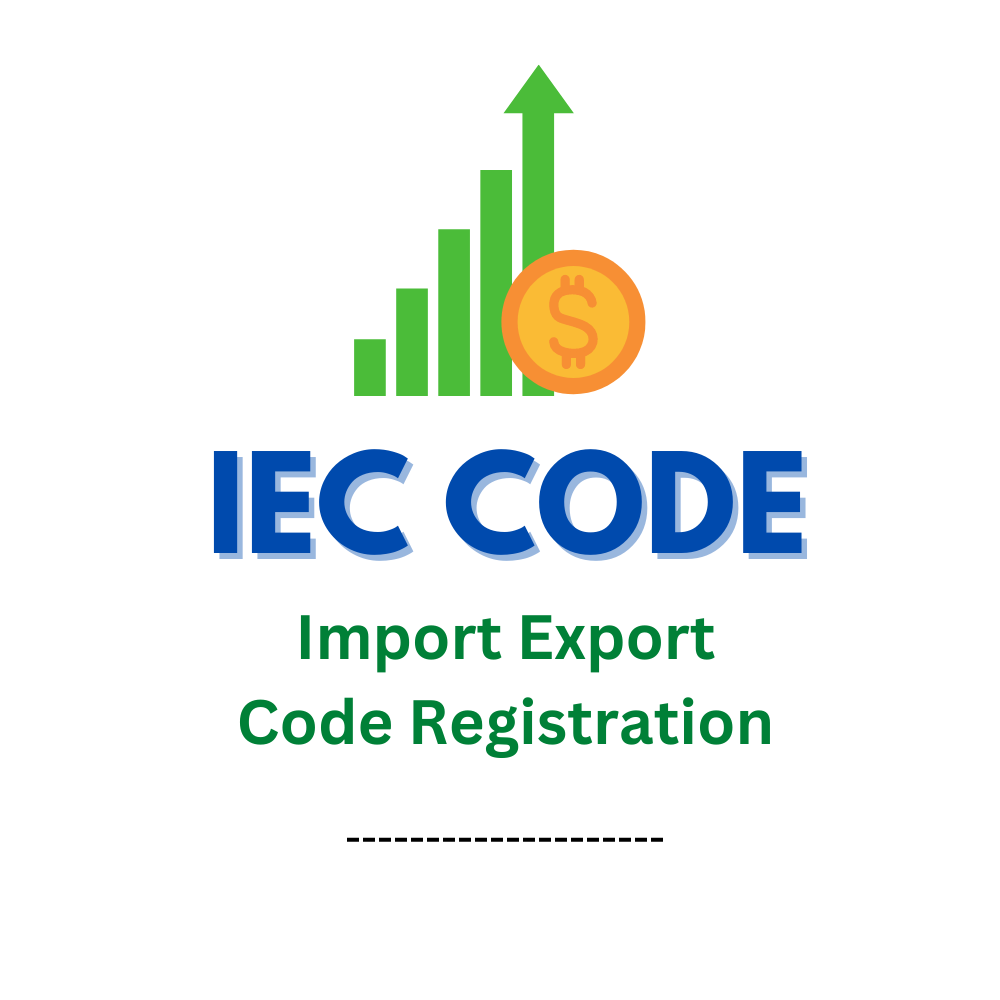Importer Exporter Code Registration
Pvt Ltd Company Registration
Get Your Business Export-Ready with Import Export Code Registration
- Certificate

Understanding Importer Exporter Code (IEC)
The Importer Exporter Code (IEC) is a unique 10-digit alphanumeric code mandated by the Directorate General of Foreign Trade (DGFT) in India. This code is indispensable for entities engaged in the import and export of goods and services. Its pivotal role lies in its multifaceted applications that streamline and regulate international trade activities. Firstly, the IEC is a prerequisite for customs clearance, ensuring that transactions are authenticated and monitored by customs authorities. It is also a key identifier in foreign exchange transactions, enabling banks to oversee and regulate cross-border fund transfers related to international trade. Additionally, the IEC is crucial for accessing government benefits and promotional schemes, promoting legal compliance, and establishing global credibility. The code’s global recognition facilitates business expansion by fostering collaborations with overseas partners, suppliers, and customers. In essence, the Importer Exporter Code is not merely a documentation requirement but a linchpin that orchestrates the smooth functioning of international trade processes.
Importance of IEC in International Trade
The Importer Exporter Code (IEC) holds immense importance in international trade, acting as a linchpin for businesses engaged in the import and export of goods. The significance of IEC in international trade is multi-faceted, with its primary role lying in ensuring compliance and facilitating seamless documentation processes.
- Legal Compliance
- Customs Clearance
- Documentation
- Access to Government Incentives
- Foreign Exchange Transactions
- Global Recognition
Eligibility and Criteria for IEC Registration
Entities eligible for Importer Exporter Code (IEC) include individuals, firms, companies, LLPs, trusts, and societies engaged in international trade. No minimum capital is required, but a valid PAN and a current bank account in the entity’s name are mandatory. There are no transaction volume restrictions, and each business location needs a separate IEC. The code has a lifetime validity, with no renewal required. Meeting these criteria ensures eligibility for hassle-free participation in global trade.
IEC Eligibility: Who Can Apply for Importer Exporter Code?
- Businesses of any legal structure, including individuals, firms, companies, LLPs, trusts, and societies, engaged in the import or export of goods/services can apply for an Importer Exporter Code (IEC). There’s no minimum capital requirement, but a valid PAN and a current bank account in the entity’s name are essential. No restrictions on transaction volume exist, and each business location requiring an IEC must obtain a separate code. IEC has lifetime validity, and renewal is not necessary. Meeting these criteria ensures eligibility for seamless participation in international trade.
Documents Required for Import Export Code Registration
- PAN card of the business or the proprietor
- Proof of identity and address of the business or the proprietor
- Passport-sized photographs of the proprietor or the authorized signatory
- Bank account details and cancelled cheque of the business
- Details of the business, such as name, address, phone number, email ID, and nature of business
- Bank certificate or statement as proof of the business’s existence
- In some cases, a letter of authorization may also be required
IEC Registration Step-by-Step Process
The process of obtaining an Importer Exporter Code (IEC) involves several steps, and it can be completed online. Here is a detailed guide:
- Step 1: Visit the DGFT Website: – Go to the Directorate General of Foreign Trade (DGFT) website (https://dgft.gov.in/).
- Step 2: Access the IEC Portal: – Navigate to the ‘IEC’ section on the website, and access the IEC portal.
- Step 3: Fill the Online Application Form: – Complete the online application form with accurate details. This includes information about the business, its directors/partners, and the type of entity.
- Step 4: Upload Required Documents: – Upload the necessary documents, which typically include PAN, address proof, and bank details. Ensure that the documents are clear and meet the specified criteria.
- Step 5: Payment of Application Fee: – Pay the applicable IEC application fee online using the provided payment gateway. The fee may vary based on the type of entity applying.
- Step 6: Submit the Application: – After completing the form and making the payment, submit the application online. A unique Application Number will be generated.
- Step 7: Track Application Status: – Use the Application Number to track the status of your application on the DGFT website.
- Step 8: Receive IEC Certificate: – Once approved, the IEC certificate can be downloaded from the portal.
Key Benefits and Uses of IEC
The Importer Exporter Code (IEC) is a critical component in international trade, offering various benefits and serving multiple purposes for businesses engaged in import and export activities:
- Global Recognition and Credibility
- Legal Compliance
- Customs Clearance
- Access to Government Incentives
- Foreign Exchange Transactions
- Business Expansion
- Streamlined Documentation
- Lifetime Validity and No Renewal Requirement
International Trade Facilitation with IEC
International trade facilitation is significantly enhanced by the Importer Exporter Code (IEC), as it serves as a linchpin for businesses looking to engage with foreign markets seamlessly. The IEC plays a pivotal role in customs clearance, ensuring efficient and transparent transactions at borders. Through its unique identification system, the IEC enables customs authorities to track and authenticate international trade transactions, expediting the clearance process. This results in reduced transit times and streamlined cross-border movements of goods.
Furthermore, the IEC is indispensable for documentation in international trade. It acts as a key identifier on shipping bills, invoices, and other trade documents, providing a standardized reference point. This not only ensures accuracy and consistency in paperwork but also facilitates a smoother exchange of information between trading partners. Businesses with a valid IEC experience a simplified documentation process, reducing the likelihood of errors and delays in customs procedures.
In essence, the IEC serves as a cornerstone for international trade facilitation by providing a standardized identification code that aids in customs clearance and documentation. Its role in ensuring compliance and authenticity of transactions makes it an invaluable tool for businesses seeking to navigate the complexities of engaging with foreign markets seamlessly. Through the facilitation of customs processes and documentation, the IEC contributes significantly to the efficiency and reliability of international trade transactions.
Business Expansion Opportunities
Having an Importer Exporter Code (IEC) not only facilitates compliance and documentation but also serves as a catalyst for business expansion and global partnerships. The IEC opens up a plethora of opportunities for companies seeking to broaden their horizons in the international market. As a registered exporter/importer, businesses gain a distinct advantage in accessing global trade opportunities. Firstly, the IEC provides global recognition, instilling trust among international partners, suppliers, and customers. This recognition is crucial for establishing credibility in the global marketplace, paving the way for strategic collaborations and partnerships. Additionally, the IEC unlocks access to various government incentives and schemes, fostering a conducive environment for business growth. With the ability to participate seamlessly in international trade, businesses can explore new markets, diversify their customer base, and engage in cross-border transactions with efficiency. In essence, having an IEC not only ensures compliance but acts as a gateway to a world of business expansion opportunities, positioning companies to thrive in the competitive landscape of global trade.
Seeking Professional Assistance
Seeking professional assistance for Importer Exporter Code (IEC) registration proves invaluable for businesses aiming to navigate the intricacies of this essential process seamlessly. IEC experts play a pivotal role by providing expert guidance on eligibility criteria, ensuring that businesses meet the necessary prerequisites before initiating the registration process. These professionals streamline the documentation process, offering guidance on the precise documentation required and minimizing the risk of errors or omissions. Moreover, their expertise enables a faster processing time, as they are adept at preparing and submitting applications accurately and efficiently.
Importantly, professionals provide assurance of compliance with all relevant rules and regulations, including legal norms and documentation standards set by the Directorate General of Foreign Trade (DGFT). In handling the complexities of the application, these experts troubleshoot and resolve issues that may arise, contributing to a smoother overall experience for businesses seeking IEC registration. Ultimately, the benefits of professional help extend beyond procedural efficiency, encompassing a proactive approach to compliance and issue resolution.
